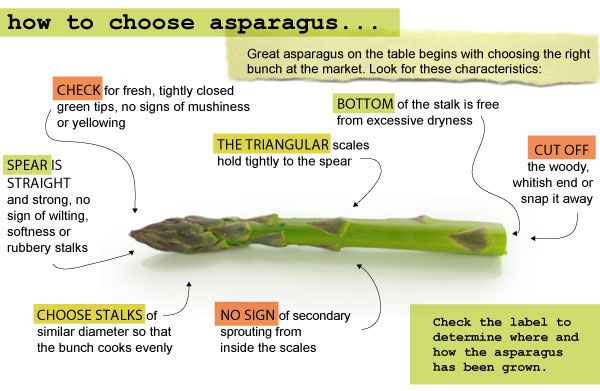Why You Should Eat More Asparagus
TEXARKANA, Ark. –
Could asparagus be the spring superfood you should eat more of? It is a bright green veggie packed with vitamins and minerals like vitamins A, C, E, K, and B6, as well as folate, iron, copper, calcium, protein, and fiber. These nutrients help asparagus offer serious health benefits.
Asparagus is the highest tested food containing Glutathione, one of the most potent cancer fighters, according to the National Cancer Institute. It is also high in rutin, which helps strengthen blood vessels.
If you are watching your calories, asparagus can help you maintain your weight. With
only 30 calories per one cup serving, and low in fat you can see how it can help with
weight loss. It also contains soluble and insoluble fiber, which helps keeps you feeling
full in between meals because your body digests fiber slower, so you are less likely
to get hungry.
The many colors of asparagus contribute to the antioxidants that help your body fight
free radicals, but you cannot overcook the asparagus. Overcooking not only gives you
a mushy or watery product, it can remove some nutritional benefits by letting vitamins
leech out into the water.
Asparagus, along with other green, leafy vegetables, is filled with vitamin K. This vitamin helps your blood coagulate, meaning it helps your body stop bleeding after a cut, and vitamin K helps your body absorb calcium so it’s actually good for bone health.
What do you look for when selecting asparagus? You want strong spears that have closed, compact, tight heads. Test freshness by making sure it snaps when bent. Prep your asparagus, by trimming the bottom ends first, and then wash the spears thoroughly before cooking them.
It should be cooked the same day it is purchased due to its delicate nature. If it must be kept longer, it should be kept cold and covered in the refrigerator and used within 2 to 3 days for best quality. To main freshness, wrap a moist paper towel around the stem ends, or stand upright in two inches of cold water.
It can be cooked many ways including grilled, roasted, cooked in microwave or on top of the stove. If cooking on top of the stove, place trimmed and washed asparagus, standing on stem, in a saucepan with one-half inch of water. Boil, cooking uncovered for the first three minutes, then cover and cook to the crisp tender stage. Remove with tongs. Toss with olive oil and add a squeeze of lemon juice to bring out the delicate flavor without adding calories or fat.
For more information, contact the Miller County Extension Office, 870-779-3609 or visit us in room 215 at the Miller County Courthouse. We're online at chadley@uada.edu, on Facebook at UAEXMillerCountyFCS/CarlaHaleyHadley, on Twitter @MillerCountyFCS or on the web at uaex.uada.edu/Miller.
Oven roasted asparagus is quick and easy to prepare. Pair it with a lean meat for dinner, or a poached egg for breakfast.
Oven Roasted Asparagus
1 bunch thin asparagus spears, trimmed
3 tablespoons olive oil
1 1/2 tablespoons grated Parmesan cheese
1 clove garlic, minced
1 teaspoon salt
1/2 teaspoon ground black pepper
1 tablespoon lemon juice
Preheat oven to 425. Place the asparagus into a mixing bowl, and drizzle with olive oil. Toss to coat the spears, then sprinkle with Parmesan cheese, garlic, salt, and pepper. Arrange the asparagus onto a baking sheet in a single layer. Bake in the preheated oven until just tender, 12 to 15 minutes depending on thickness. Sprinkle with lemon juice just before serving.
By Carla Haley-Hadley
County Extension Agent - FCS
The Cooperative Extension Service
U of A System Division of Agriculture
Media Contact: Carla Haley-Hadley
County Extension Agent - FCS
U of A Division of Agriculture
Cooperative Extension Service
400 Laurel Street, Suite 215 Texarkana AR 71854
(870) 779-3609
chadley@uada.edu
The Arkansas Cooperative Extension Service is an equal opportunity institution. If
you require a reasonable accommodation to participate or need materials in another
format, please contact your County Extension office (or other appropriate office)
as soon as possible. Dial 711 for Arkansas Relay.
Pursuant to 7 CFR § 15.3, the University of Arkansas System Division of Agriculture
offers all its Extension and Research programs and services (including employment)
without regard to race, color, sex, national origin, religion, age, disability, marital
or veteran status, genetic information, sexual preference, pregnancy or any other
legally protected status, and is an equal opportunity institution.
